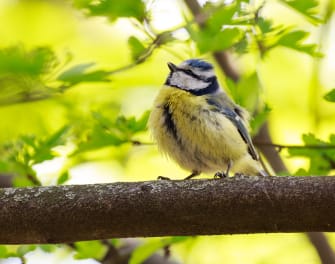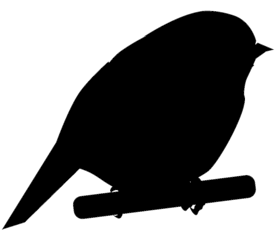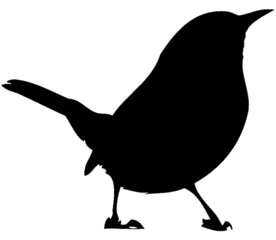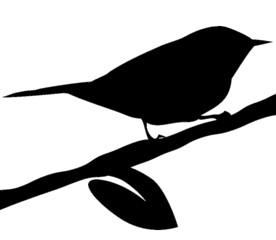Decker's Nursery has all of the tools and products that you need to make your yard a truly stunning place to be, including all of the supplies you’ll need to attract birds to your yard and keep them happy and fed. We have everything a wild bird may need, from bird feeders to birdhouses, so that you can sit back, relax, and watch your new feathered friends through your home's windows.

Knowing how to attract the birds that interest you can take practice and know-how. Fortunately, we have a team of experts who can show you exactly what you’ll need. Whether you want to attract hummingbirds, cardinals, or any other type of bird in the area, we know exactly which features and feed will be most attractive to the birds you love.
We also have solutions to a range of common problems you may encounter, like how to keep other animals out of your birdseed or what changes you should be making as Fall or Winter arrives. Attracting the birds you love has many benefits, and here at Decker’s Nursery, we would love the chance to answer your questions and help you find all the products you’ll need to achieve your birding dreams!
Benefits of Attracting Birds
You probably already know that you enjoy seeing all or a particular species of bird in your backyard, but you might not be aware that there are proven benefits other than a pleasurable experience to attracting wild birds to your yard or garden.
Health Benefits
If you love seeing your favorite birds on a walk or while looking out your window, you'll be happy to know that there are mental health benefits from seeing birds on a daily basis. Living in an area that has many birds is linked with lower incidents of depression. Both the sight of birds and the sound of their songs can help restore your mind. Also, by spending time in nature, your attention to detail can improve.
Yard Benefits
You might love your backyard, but if you work hard to maintain it, you'll be pleased to know that birds can help you control some of the aspects of nature that you would rather be rid of. For instance, birds eat many of the pests that can infest your yard. For example, bringing wild birds to your yard is an excellent way to reduce your aphid and mosquito populations. And as a bonus, you won't even need to use chemical pesticides!
Home Value Benefits
When you plan your landscaping around what naturally grows in the area, you'll also attract more native birds, which can increase the value of your home. For instance, native plants will attract native birds, and native plants will use less water and need less maintenance. Also, after you’ve improved your landscaping to attract birds, your house will have more curb appeal.
Many people enjoy seeing birds, so creating a yard or garden that brings in a wide variety can help push you over the top compared to similar homes in your area. Plus, the absence of pests will make a positive impression on potential buyers.
Native Long Island Birds
There are numerous species of birds that call Long Island their home. While there are larger birds, such as turkeys, gulls, geese, vultures, and ducks, most people are interested in seeing many of the smaller birds in their yards. For instance, you might enjoy:
Many of the birds mentioned above prefer wooded areas, but if you live near the beach there are still plenty of other species for you to enjoy viewing from your property. For instance, if you want to lure in Sandhill Cranes, you can spread seed on top of the ground because they enjoy foraging with their beaks. They also enjoy shallow water of less than a foot deep, so if you're planning a large yard, you can add a shallow water feature to attract cranes.
There are more than 100 different species of birds that are native to Long Island, and you can use a variety of techniques and products to lure them onto your property.
Wild Bird Supplies That Fit Your Needs
At Decker's Nursery, we have numerous products to help you attract birds to your garden. For instance, one of our birdhouses would make a lovely new home for a family of finches, and we have birdseed for a whole variety of birds, from woodpeckers to chickadees.
Frequently Asked Questions
Frequently Asked Questions on Bird Supplies
Are birds good for a garden?
Birds consume various pests as food, and some also facilitate flower pollination. These small birds often prefer to consume live bugs and pests instead of the fruits growing on trees, for example.
Examples of pests that constitute a tasty treat for birds include earwigs, worms, grasshoppers, beetles, and flies. Although small birds also eat berries and seeds, they tend to prefer eating live bugs during the spring and summer months.
In addition to pest control, many birds also assist in the pollination of flowers. For example, hummingbirds can pollinate a variety of flowers while also consuming mosquitoes, mites, gnats, aphids, and other common garden pests. Other birds may consume seeds that would otherwise grow weeds, and this assists the gardener immensely by preventing the growth of weeds before they ever appear.
What supplies will I need to bring birds to my garden?
The contents of your landscape can attract birds into your garden, so it’s important to understand how to attract these beneficial birds. However, wild birds might not appear right away, so it is also important to be patient during this process.
Provide birds with access to bathing materials and food to attract them to your garden. This includes dust as well as water because birds will often use dust as a bathing material to get rid of parasites and mites. Food perches, hanging feeders, water, and shade are the most critical elements for birds, so make sure these supplies are readily accessible.
Luckily, Decker’s Nursery carries everything you’ll need to bring beautiful, beneficial birds to your Long Island yard and garden. From birdhouses to bird fountains, we have what everything you need to get started!
How do I attract more birds to my yard?
Birds are usually attracted by food and habitat, but they are also attracted to shade. Plenty of evergreen trees provide needed shade and a place to perch for small birds. Plant a diverse variety of trees, perennials, and shrubberies. This provides them with hiding places if they are being hunted by predator birds.
Abundantly located bird feeders will also help to attract birds to your garden. Easily accessible seed and other tasty bird food will make it easy for them to find a snack, and this can also encourage them to return. Place the feeders at various levels including the ground level and in tall trees to ensure that even the most picky of potentials diners will have options.
A noisy birdbath can also give birds access to water for bathing or drinking. If possible, make sure that the water is audible because birds will be able to hear the sound of running water from a distance. Water pumps and misters can produce the desired sounds. Once they arrive, they will find other interesting items you provide, and this will encourage them to stay long enough to grab a tasty insect or two from your garden. Finally, place birdhouses in various locations to make them feel welcome.
Do different birds prefer certain foods?
The short answer, yes. Woodpeckers are notorious for consuming insects. They also like logs, suet, and dead trees. You can place a dead tree near the edge of your property to attract woodpeckers, and this will avoid the problem of trying to figure out where to put a dead tree without ruining the aesthetic of your yard.
Hummingbirds feed on insects, but they also enjoy nectar or sugar solutions. Crows and magpies eat suet, cracked corn, peanuts, safflower, sunflower seeds, citrus, and grapes. Pigeons and doves like buckwheat, sunflower hearts, millet, cracked corn, and wheat.
Bluebirds, robins, and thrushes also eat suet, and they will feast on sunflower hearts, citrus, berries, soaked raisins, mealworms, and nutmeats. Provide a variety of foods in the feeders placed at different levels in your garden to attract a variety of pest-eating birds.
What types of foods should I not feed wild birds?
Some foods can harm birds, so it is important to avoid placing them in your garden. For example, salty foods like peanuts, bacon, and chips can cause their bellies to swell after they are consumed. Desiccated coconut is dangerous, and spoiled or moldy foods are also harmful. Avoid milk, dry foods, large pieces of bread, and loose peanuts as these can potentially choke the birds to death.
Do certain colors attract different birds?
Yes. Birds respond to various colors for different reasons. For example, small birds that are hunted by larger predator birds will be attracted to earth tones that provide ample camouflage. Trees and garden props featuring brown, green and gray color schemes will attract these birds.
Bright yellow will attract goldfinches and hummingbirds, and orange is also known to attract orioles as well as hummingbirds. Blue is a color that bluejays will find attractive. This pattern of the bird’s own colors attracting them isn’t accidental. Birds will seek colors that indicate the possible presence of a mate or tones that provide refuge from hunters.
Where can I find bird supplies on Long Island?
Decker’s Nursery, in Greenlawn, stocks a wide variety of bird supplies, feeders, mulch, and other products to make your garden lush and attractive to the wild birds in the surrounding areas. Browse through our extensive inventory of gardening supplies, pottery, flowers, plants, trees and much more. Our garden center is a dedicated location where you can quickly get all your questions answered by our helpful and friendly professionals.



